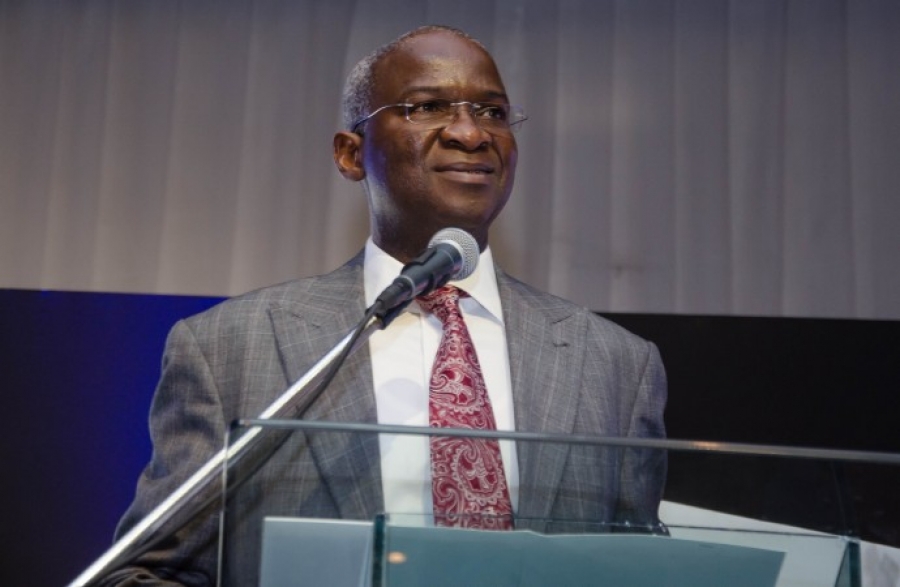- FG Okays Power Service Improvement Plan
The Federal Government on Wednesday approved the Power Sector Recovery Programme comprising many policy actions to be carried out to improve service delivery, and also approved contracts for the construction of 13 roads and replacement of bridges across states of the federation and the Federal Capital Territory worth N85bn.
The decisions were taken at a meeting of the Federal Executive Council presided over by President Muhammadu Buhari at the Presidential Villa, Abuja.
The Minister of Information and Culture, Alhaji Lai Mohammed; Minister of Power, Works and Housing, Mr. Babatunde Fashola; and Minister of the Federal Capital Territory, Alhaji Mohammed Bello, briefed State House correspondents at the end of the meeting.
Fashola listed some roads and bridges that would gulp N80bn as being located in Taraba, Adamawa, Sokoto, Zamfara, Bauchi, Plateau, Osun, Kwara, Kano, Oyo, Enugu and Kaduna states.
He said the council also approved the contract for the engineering and consultancy designs for two access roads to link Asaba, Delta State; and Onitsha, Anambra State, to the Second Niger Bridge.
He said the contract had a duration of six months and would gulp N150m.
The minister said the council also approved the extension of the consultancy and project management of the Katsina Wind Energy Farm Project.
On the power sector recovery programme, Fashola said it comprised many policy actions, operational and financial interventions that needed to be carried out by the government to improve transparency, service delivery and performance of the electricity distribution firms, among others.
The minister said, “Some of the highlights of the programme are how to simplify and reduce the cash deficits that have accumulated as a result of previous unilateral reduction of tariff by the last administration during the run-off to the elections; and how to make the Discos viable, accountable, responsive to customers, ensure stability of the grid and expansion of the grid, and transparency and communication within the sector.
“The programme also processes for Ministries, Departments and Agencies debts and how to improve sector governance and the quality of personnel on the board of the Discos.
“It addresses access to renewable energy, especially in rural areas, using mini-grids and standalone solutions and how we are going to carry out the solutions that have been developed for 37 federal universities and seven tertiary hospitals.”
Fashola added, “It also focuses on how to solve the Niger Delta problem and also how to ensure there is a stable and predictable foreign exchange policy for the sector so that it is somewhat protected from sudden head winds of the volatility of the foreign exchange market so that the operators can plan and deliver.
“It also addresses the issue of vandalism at consumer and production levels of pipelines, among others. This will help bring confidence to the market and stimulate the appetite that currently exists globally for Nigeria’s power sector.
“We see a lot of people who want to invest, but some of them are tied to what other international financial institutions do and the institutions are also waiting to see us commit to these things.”
Bello, on his part, said the council approved the award of contract for the second phase of the Abuja Mass Transit Lot 1B (26.77km), which is from Ring Road I, passing through Area 10 beside Wuse Market, Berger Junction, Jabi Motor Park, through Life Camp to Gwagwa.
He said the project, being funded by China EXIM Bank, would gulp $1.79bn and was awarded to CCECC.
The minister gave the other components of the project to include the remaining part of Lot 1A (5.76km); rolling stocks; workshop equipment; and three years’ management contract.

 Naira4 weeks ago
Naira4 weeks ago
 Naira4 weeks ago
Naira4 weeks ago
 Travel4 weeks ago
Travel4 weeks ago
 Naira3 weeks ago
Naira3 weeks ago
 Jobs4 weeks ago
Jobs4 weeks ago
 Naira4 weeks ago
Naira4 weeks ago
 Investment4 weeks ago
Investment4 weeks ago
 Travel4 weeks ago
Travel4 weeks ago


























